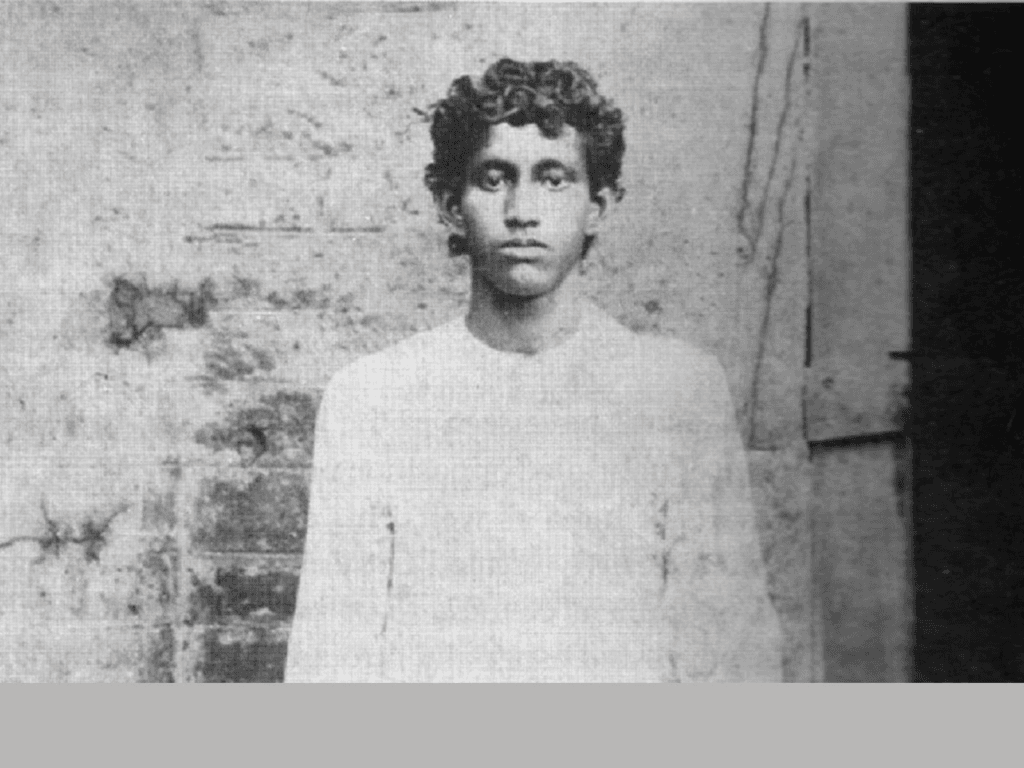Khudiram Bose

Early Life and Background
Khudiram Bose was born on 3 December 1889 in the village of Haimchali, located in the Midnapore district of Bengal, which is now part of West Bengal, India. He came from a poor but respected family of farmers. His father, Trailokyanath Bose, was a devout man, and his mother, Prabhavati Devi, was a strong influence on his upbringing. Khudiram’s early years were spent in the countryside, where he witnessed the harsh realities of British colonial rule and developed a deep sense of patriotism. He was educated at the local school in his village and was known for his intelligence and strong will. His exposure to Indian nationalist ideas from a young age ignited his desire to fight against British oppression.
Involvement in the Freedom Movement
As a teenager, Khudiram Bose became deeply influenced by the nationalist movements that were sweeping through Bengal. He joined the revolutionary group Anushilan Samiti, which was focused on organizing youths to fight for Indian independence through armed struggle. The influence of leaders like Aurobindo Ghosh and Barindra Ghosh, who were involved in the revolutionary activities, had a significant impact on his ideology. Khudiram was inspired by the idea of direct action against British officials and began participating in underground activities, including preparing for armed resistance and helping to smuggle explosives and weapons. His fearless nature and passion for freedom earned him the respect of his fellow revolutionaries.
The Muzaffarpur Conspiracy
Khudiram Bose’s most well-known act of bravery occurred in 1908, when he became involved in the Muzaffarpur Conspiracy. The plan was to assassinate the British judge, Kingsford, who was known for his oppressive actions against Indian nationalists. Khudiram, along with his associate Prafulla Chaki, was entrusted with carrying out the mission. On 30 April 1908, they attempted to kill Judge Kingsford by throwing bombs at his carriage. However, the bombs missed the target and instead hit the carriage of two English women, who were killed in the attack. This tragic mistake led to the British authorities arresting Khudiram and Prafulla Chaki for the bombing. The incident led to widespread uproar and made Khudiram an immediate target of the British.

Arrest and Trial
Following the bombing, Khudiram Bose was arrested by the British police in May 1908. He was charged with the murder of the two English women and the failed assassination attempt on Judge Kingsford. Despite his young age of just 18, Khudiram exhibited remarkable courage and dignity during his trial. He remained resolute in his belief that his actions were justified as part of the larger struggle for Indian independence. He faced the trial with remarkable composure and refused to appeal for mercy, even when given the option. His steadfastness in the face of British authority earned him the admiration of many Indians, and he became a symbol of youthful patriotism and sacrifice.
Sentence and Execution
Khudiram Bose was sentenced to death by the British court for his role in the Muzaffarpur bombing. On 11 August 1908, he was hanged at the age of 18, making him one of the youngest martyrs in the Indian independence movement. His execution sparked outrage across India, with protests erupting in various cities. Khudiram’s death galvanized many young Indians to take up arms against British colonialism and inspired a new wave of revolutionary fervor. His willingness to die for the cause of independence left a lasting legacy, and he became a hero to countless others fighting for India’s freedom.
Legacy of Khudiram Bose
Khudiram Bose’s martyrdom left an indelible mark on the Indian freedom struggle. His death was a turning point for many revolutionaries, and he became a symbol of sacrifice and bravery. The impact of his actions was far-reaching, inspiring many young Indians to join the nationalist movement and take part in revolutionary activities. Over the years, Khudiram’s story has been remembered through books, plays, and films, and he is regarded as one of the earliest martyrs in the Indian independence movement. His courage in the face of certain death has made him a symbol of youthful patriotism and determination.
Recognition and Remembrance
Khudiram Bose is remembered as one of India’s greatest freedom fighters. Although he was young at the time of his death, his bravery and unyielding commitment to the cause of independence made him an icon of the movement. Various institutions, such as schools, streets, and parks, have been named after him in recognition of his sacrifice. His legacy continues to inspire generations of Indians to stand up for justice and fight for freedom, even in the face of overwhelming odds. Khudiram Bose remains a cherished figure in Indian history, celebrated for his patriotism, courage, and ultimate sacrifice for the country’s independence.
